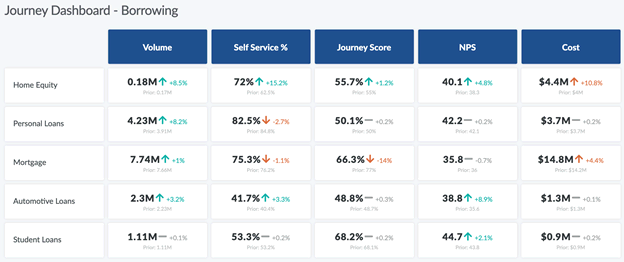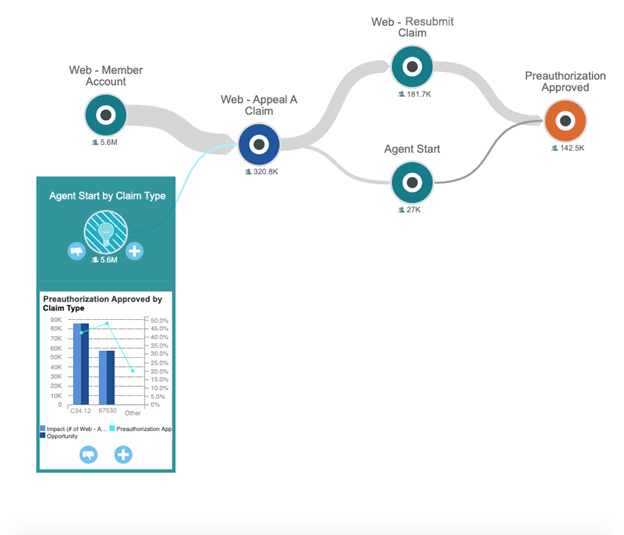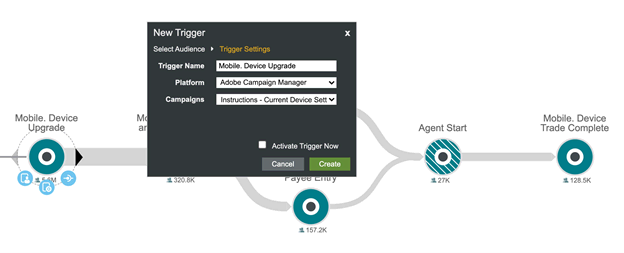Your Genesys Blog Subscription has been confirmed!
Please add genesys@email.genesys.com to your safe sender list to ensure you receive the weekly blog notifications.
Subscribe to our free newsletter and get blog updates in your inbox
Don't Show This Again.

According to Forbes, poor customer service is costing businesses more than $75 billion a year. The pressure to reduce contact center costs is immense. But many contact center leaders struggle to achieve these outcomes while simultaneously improving customer satisfaction.
Contact centers are now considered more than just service centers. Enterprises expect contact center leaders to transform call centers into customer experience hubs, delivering the exceptional experiences that customers demand and drive long-term growth.
Advances in digital technology have reshaped customer expectations for exceptional experiences. Today, customers have — and demand — choices when it comes to engaging with service and care centers. However your customers choose to interact with your organization, contact center leaders must ensure that all agents can meet customers where they are, understand each individual’s unique context and enable them to reach their goal.
In this post, I’ll explore why enterprise contact centers struggle to increase satisfaction while mitigating costs, why journeys enhance contact center optimization and how aligning on and managing customer journeys is the key to improving contact center outcomes.
While every enterprise strives to optimize contact center experiences, internal strategies, operations and processes often present major challenges. Traditionally, leaders focus on interactions within the contact center. But what lies beyond the contact center is critical to your ability to improve contact center performance and CX.
We’ll look at:
Let’s dive into four reasons contact center leaders struggle to minimize costs while improving customer satisfaction at the same time.
Digital transformation has long been a goal for contact center leaders, but its importance has grown immensely. A CCW Digital market study found that contact center leaders are raising digital experience priorities to respond to this shift. Initiatives include “training staff for interactions in new channels, optimizing AI and self-service opportunities and improving integrations between touchpoints.”
While these priorities are sound, contact center leaders are challenged to put them in motion. Current systems and workforce often limit your ability to understand customers as they move across channels.
The problem doesn’t improve once you get beyond the contact center where data is typically isolated within siloed systems. While marketing, product, CX and other leaders may strive to share insights, accessing the data in their systems is cumbersome and rarely happens in real time.
The amount of effort, resources and cost necessary to achieve a comprehensive and effective omnichannel strategy are staggering. Those who try to tackle this problem often find that their efforts suffer due to lack of focus, competing priorities and significant costs.
As Back to the Future’s Dr. Emmett Brown once said, “the consequences could be disastrous!” More than half of customers engage with three to five channels during each journey they take. They may require agent assistance if they encounter a problem trying to diagnose a service interruption or dispute a credit card charge. Your customers expect agents to understand their unique context, including:
Armed with this knowledge, agents can serve customers efficiently, increasing Net Promoter Score (NPS), CSAT and FCR, and minimizing customer effort (CES), average handle time (AHT) and repeat calls.
Without it, you risk frustrating them with interactions that require lots of effort, long hold times and costly escalations. Compound enough poor quality interactions together and you may put customers at risk for churn.
Contact centers often apply speech and text analytics tools to analyze interactions through their IVR, chat and call systems. Analysts rely on this technology to comb through interaction recordings to create transcripts, identify common call drivers, flag potential compliance issues and more.
Leaders often rely on natural language processing (NLP) to better identify customer intent and improve call dispositioning. This technology can help agents understand why customers have reached out. But not what steps they have taken or which channels they leveraged before reaching out to the contact center for help.
However, these analytics solutions are typically restricted to contact center-specific channels. The rapid analysis and high accuracy of NLP is beneficial, but cannot provide the context of what customers were doing before and after they speak with an agent.
It’s essential to know what customers are doing in other channels and which goal they are trying to reach. Otherwise, it’s incredibly difficult to deliver intuitive and empathetic experiences that are also efficient and scalable.
To inform your contact center optimization strategies and tactics, it’s crucial to know the goal each customer is seeking to achieve and the impact of their unique journey on CX metrics and business objectives. Unfortunately, many contact center leaders struggle to do so.
Most every contact center leader uses dashboards to track performance, metrics like first-contact resolution, AHR, CSAT and more. However, these KPIs are typically measured in aggregate or by channel, rather than by the actual goals your customers are pursuing. This is problematic, as top-level metrics make it difficult to:
Measurement programs must evolve beyond overall satisfaction, efficiency and containment rates. It’s important to monitor specific signals and indicators that are aligned with both contact center and organization-wide outcomes. Your dashboards should allow you to drill down from high-level KPIs to the specific paths customers take to reach their goal. This will show the specific channels or interactions within a journey that cause your scores to fluctuate.
After all, how can you improve satisfaction and reduce costs if you can’t pinpoint which interactions are driving those metrics?
Interactions within your contact center are just one part of a customer journey. It’s crucial to understand end-to-end journeys to identify the drivers of contact center outcomes.
A customer journey is the series of steps customers take with your organization — both within and beyond the contact center — to achieve a goal. To measure and improve contact center experiences and operations, you need to connect the dots. After all, customers view what they do before and after they engage with the contact center as one experience with your organization.
This way, you can easily answer questions such as:
Journeys can also enhance approaches you already use, like text and speech analytics. Combining what customers are doing with why they’re doing it provides agents with the actionable information they need to deliver consistent, high-quality service across every channel.
Monitoring what happens before, during and after a contact center interaction gives you the information you need to prioritize CX improvements and cost saving initiatives. Rather than simply monitoring their KPIs by channel, customer-centric leaders track them by journey. This includes what happens before their customers reach the contact center and what happens after an agent addresses their inquiry.

For example, one national telecom provider had a goal to decrease call duration. Agents worked hard to shorten calls and significantly reduced this metric. Changes in the contact center led more customers to request a technician to complete the set up for their new modem. As a result, truck roll costs rose dramatically, heavily impacting the overall cost to serve.
Once the company analyzed the entire setup journey, they realized that the majority of customers visited the FAQ page to self-serve but leaked into agent-assisted channels to complete the process.
By taking a journey-based approach, the wireless provider was able to improve the FAQ page. They also enhanced agent training to provide sufficient instructions to customers who did leak into the contact center. This resulted in reduced call volume and fewer truck rolls, which reduced costs and improved satisfaction.
Customer journeys provide measurable benefits that provide value to your customers and your business. Using a journey lens enhances your approach to contact center optimization. It provides journey-driven tactics you can act on to increase operational efficiency and customer satisfaction.
Aligning on journeys can improve how you:
By monitoring key metrics such as FCR and AHT, contact center leaders can assess the performance of assisted and unassisted channels and hopefully, see changes in real time. But traditionally, metrics are aggregated and measured by channel, which makes it difficult to determine how specific experiences impact each outcome.
When measuring KPIs this way, you can guess how different initiatives might improve certain metrics, but you’re likely wasting time and resources on actions that will help little or not at all. Journeys take the guesswork out of contact center measurement.
Connecting journeys across self-service and agent-supported channels enables you to monitor omnichannel metrics, better understand why they are changing and prioritize actions to improve those numbers.
Journey-based measurement allows you to drill down deeper and uncover which journeys are driving changes to your metrics. These journeys might include applying for a mortgage or purchasing a mobile phone, changing an address or adding a dependent. This way, you know which customer goals, as well as the touchpoints they leverage to reach those goals, impact contact center outcomes.
The VP Contact Center Strategy and Analytics at a large retail bank notices an influx in call volume of almost 44% and an increase in cost by 228%. She also sees FCR decreasing dramatically.
She could invest in digital transformation initiatives to optimize self-service channels, but that endeavor would take months, if not years to achieve. She could also opt for more training to enable agents to resolve contacts on the first call. But before doing either, she analyzes the behavior driving call volume.
The VP sees that call volume is spiking after clients use the iOS version of the mobile app. She finds that clients place a call after attempting to add a payee. This indicates that these clients are on a Make a Payment journey, a crucial sub-journey of the overarching Money Movement journey.
She shares this information with the mobile app product manager, whose team works to fix the iOS issue.
She also alerts the client services team who activates an audience, which will update daily until the app is fixed. The audience includes customers who have already encountered the problem and customers already in the Make a Payment journey that are likely to experience this issue in the near future. They also set up an automated communication to this audience that acknowledges the issue and contains a digital workaround.
This way, call volume and costs decrease while FCR rises and the VP can directly connect this behavior to business-critical outcomes.
One of the most crucial aspects of contact center optimization is determining the drivers of contacts, especially costly ones. This is one of the greatest challenges contact center leaders currently face. It’s difficult to know exactly what customers are doing across channels. But it’s imperative to understand their behavior before implementing changes and improvements.
The cause may lie within your contact center itself due to confusing IVR or AI-powered chat scripts, or the problem may be beyond your control, such as when a telecom customer experiences a service outage or a health insurance member receives an incorrect claim. In the latter instance, data is typically siloed within other business departments like product or billing.
Identifying the root cause of contacts requires understanding more than just the most recent contact center interaction an individual has had. That’s why journey-based approaches like customer journey analytics are so crucial. It enhances root cause analysis by analyzing all the steps customers have taken in order to recognize the customers’ goal and the channels they have leveraged to accomplish that goal prior to reaching out to the contact center for help.
The Director of Contact Center Operations at a health insurance provider is alerted about an influx in contacts, as well as a significant decrease in member satisfaction. The director prompts her analytics team to diagnose the problem.
The analysts use a journey management tool to uncover the journeys that most frequently result in agent-supported contacts. Diving deeper, they find that the influx is coming from members addressing a pre-authorization denial.
Further, they see that the majority of these contacts are members whose physicians are requesting a specific treatment. It seems that the insurer’s system is incorrectly coding physical therapy as a surgical procedure.
The Contact Center Operations Director shares this information with the team that owns the prior-authorization workflow so they can optimize the submission process. She also connects with care managers, who reach out to members denied for this particular treatment to notify them of the issue and provide a temporary workaround.

Many contact center leaders leverage dashboards that track high level metrics like CSAT, re-contact rate, digital containment rate and more. But these metrics only illustrate how you’re performing—not why.
Integrating NLP tools with journey analytics enables you to determine not only what is changing, but more importantly, why. Pinpointing multiple drivers of contacts based on what your customers actually say to an agent may reveal call reasons that don’t fall within the scope of your current disposition codes.
Adding information gleaned from journeys, rather than relying on disposition codes manually assigned during the most recent contact center interaction improves data quality and reduces costs. It also improves call routing and enhances agent efficiency, as contacts can be triaged more effectively with more thorough information.
Journey orchestration allows you to leverage omnichannel customer behavior to prompt actions that reflect each individual’s unique context and help them achieve their goals more easily. By optimizing self-service options you can reduce contact center costs by minimizing human-assisted interactions and allowing agents to focus on more complex inquiries.
Contact center leaders are now adopting journey orchestration to improve digital touchpoints, from automated chatbots to conversational virtual agents, as well as next-best action generation. Fueling digital touchpoints with real-time customer journey data allows you to orchestrate actions that are informed by each customer’s historical experience and current goals.
For example, if a customer visits your website to diagnose a service disruption, your chatbot can serve that customer instructions on how to check and fix hardware issues that may cause connectivity problems. These kinds of actions help customers avoid an interaction with an agent.
A leading mobile provider analyzed the journeys for customers trading in their current cell phone for a new model. The VP of Customer Care sees that customers begin their journey on the website but end up contacting an agent to complete it.
Using journey analytics, they find that customers call because they don’t know how to find their model and serial numbers which are necessary to make the trade.
The VP shares this information with the digital product team, who deploy new functionality that automatically recognizes a customer’s device and populates their model and serial number into the web form.

Next, customer care and marketing create and orchestrate a web pop-up with instructions on how find their model and serial numbers on their own. This pop-up appears when customers click on this field of the web form. This allows customers to complete their trade online without contacting an agent.
When it comes to contact center optimization, managing escalations and complex cases is often front of mind.
Whether a customer is simply unhappy with a product or service or your agent lacks the training to serve them efficiently, your customer’s problem may require escalation. Escalations cost money, require time and expertise, and often put customer satisfaction in jeopardy.
Escalated contacts are inevitable. But journey-based approaches like customer journey analytics can identify the root cause of escalations and improve how you manage them.
Consistent monitoring of omnichannel journeys enables you to:
Every enterprise desires to improve customer satisfaction. But it typically leads to each business unit purchasing expensive technology that will serve its purposes alone. You end up mired in a complex web of technology with little visibility about how customers are interacting with parts of the organization beyond your department.
Journeys are the key to unlocking and sharing information across your organization.
Analyzing omnichannel journeys shows you exactly how customers engage with other parts of your business and helps you identify which journeys result in contacts. This provides you with useful data to share with your colleagues. They can use this information to determine which improvements to prioritize and implement.
Using journeys improves internal collaboration. This can certainly reduce call volume or increase digital containment rates. It also helps your enterprise become more customer centric, by delivering more consistent experiences across every touchpoint.
Operating a contact center is complex with the proliferation of new digital channels, remote agent work, AI and evolving customer demands. It’s no wonder why customer care and service leaders are adopting a new approach to satisfy customer needs and meet business goals like improving efficiency and reducing cost to serve.
Aligning on customer journeys improves your measurement program and your ability to quantify the impact of customer behavior in the contact center to business-critical outcomes. Using journeys, you can identify the goals customers try to accomplish using self-service channels, as well as how successful they are at achieving those goals.
The benefits of using customer journeys for contact center optimization not only impact metrics and KPIs, but also extend across your business and most importantly, to your customers.
See how the Genesys Cloud™ platform enables you to harness valuable AI capabilities through the power of experience orchestration.
Subscribe to our free newsletter and get blog updates in your inbox.
Related capabilities: